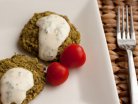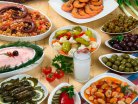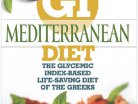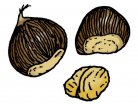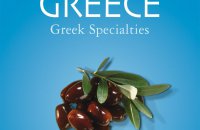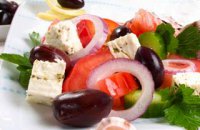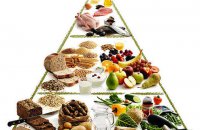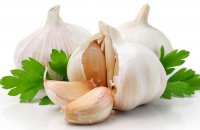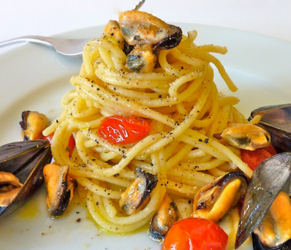Food groups
Cereals
Every day, on the average, should include about eight servings of cereals and cereal products, preferably non refined ones, including bread. This guideline is not difficult to accommodate, even in the contemporary Greek diet, since Greeks still consume a lot of bread. Non refined cereals and their products provide a considerable amount of fiber, which is a desirable attribute.
Potatoes
Though some classify potatoes under vegetables, they nutritionally fit better under the category of cereals, particularly refined ones. Like white bread, potatoes have been found to have a high glycaemic index and current nutrition advice is that they should not exceed 3 servings per week.
Sugars
Simple sugars are plentiful in deserts, and also exist, or are added, in beverages, like coffee, tea, fruit juices, soft drinks and colas. They are also naturally found in many fruits. Simple sugars have glycaemic effects mainly comparable to or less than those of starch from cooked foods. Reduction of sugar intake can be accomplished through training during the early years of life. The use of sugar substitutes, such as saccharine and aspartame, has not been linked to human risk, but avoidance of excess consumption may be prudent. Although many Greek deserts are prepared with olive oil, a multitude of nuts, fruits and flour, rather than fresh cream or butter, the average daily intake should not exceed half a serving per day, or a serving every other day.
Vegetables and fruits
Every day, on the average, should include about six servings of vegetables and three servings of fruits. There is no risk in the excess intake of vegetables or fruits, so long as energy expenditure balances energy intake. Vegetables and fruits provide a considerable amount of fiber, several micronutrients (potassium, calcium, vitamin C, vitamin B6, carotenoids vitamin E, folate), as well as other compounds with antioxidant potential. The wild greens traditionally consumed in Greece are of particular interest, since they represent a rich source of antioxidants. Vegetables can be consumed either cooked in olive oil, or raw in the form of salads.
Pulses are rarely consumed and rarely independently considered in FBDG of most countries. In Greece, however, olive oil allows the preparation of delightful dishes with pulses that share some of the health attributes of vegetables and also provide protein, albeit of moderate quality. Consumption of an average of one serving every other day is advised.
Origan, basil, thyme and other herbs grown in Greece are a good source of antioxidant compounds and can be a tasteful substitute for salt in the preparation of various dishes.
Meat and eggs
Consumption of poultry, eggs and red meat should not exceed on the average one serving per day, and further reduction does not appear to compromise good health among adults. Poultry is much preferred over red meat, and eggs, including those used for cooking or baking, should not exceed 4 per week. So a person may consume 3 eggs and two servings of poultry per week.
Fish and seafood
Fish and seafood could physiologically substitute meat and eggs, but culinary, practical and economic constrains dictate a recommendation of about one serving per day.
Dairy products
Consumption of an average of two servings per day of dairy products, in the form of cheese, traditional yogurt and milk appears compatible to good health and culinary traditions of the Greek population.
Added lipids
Olive oil should be preferred over other added lipids, in salads, fried or cooked foods. When BMI kept below 25, there is no scientific reason to limit olive oil intake, notwithstanding its high energy content. In a weight reducing diet, increasing physical activity and reducing caloric intake are priorities. Foods do not affect BMI in ways beyond those determined by their energy content. Specifically, reducing olive oil intake may not be the preferred option if this is to be accompanied by the reduction of vegetable and pulses intake, which are usually prepared with olive oil.
Water
Thirst adequately regulates water intake, except among the elderly and in some pathological conditions. In general terms, the higher the energy consumption and expenditure, the higher the quantity of water needed. Substitution of water with non-alcoholic beverages offers no advantage.
Ethanol
Consumption of alcoholic beverages equivalent to about 30 g of ethanol (three servings of most alcoholic beverages) per day among men and 15 g of ethanol (one and a half servings of most alcoholic beverages) per day among women have beneficial overall effects on health. There is evidence that consumption of wine during meals is more beneficial than consumption of spirits or beer outside meals, and some suggestion that red wine is more beneficial than white wine.
The 4 Golden Rules of the this Diet
Eat slowly, preferably at regular times during the day and in a pleasant environm
Prefer fruits and nuts as snacks, instead of sweets
Prefer whole grain bread or past
Always prefer water over soft drinks
You may read Dr. Fedon Alexander Lindberg's book for much more info to be learned about the Mediterranean Diet.

